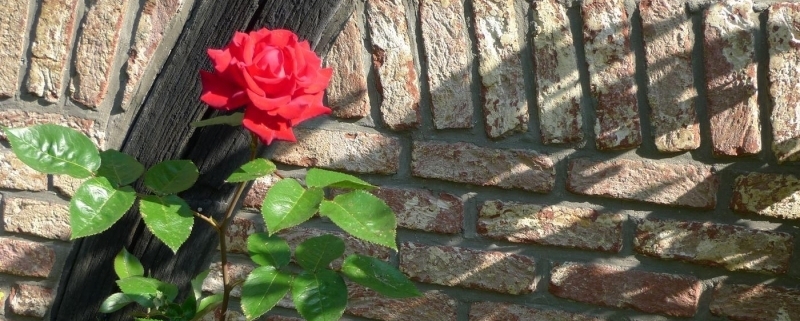Dealing with Death
~ A text by Yoginâm ~
Death is always the natural end to living
Whenever it happens and in whatever way
Dying is distinct from the circumstances of dying
That is why the sufi's can advise you
To learn to die before you die because
Then you will not die when you die
From the perspective of a oneness of all
In the sense of the quantum unified field
Or like the all embracing and unknowable Dao
Which is identical to what I call Abbah
Life is like a ripple on the surface of the ocean
It comes up and it recedes
Life is an interlude in unchanging permanence
But it is only so from the perspective of living
From the perspective of unchanging permanence
There is no life there is only unchanging permanence
Death is something that takes place
Only from the perspective of living
Something that had been recognised as living
Is no longer living which does not mean
That it has disappeared or vanished
It means only that it is no longer in the state of living
The state of material everyday life
Is one of of many simultaneous states of being
Most of which we are not aware of
Living is one of the many states
And the death of living is like a radio station
That goes off the air
Because living is alive from the perspective of living
Death has always been considered as a great mystery
As its very nature is contrary to living
Every culture has designed ways to deal with it
Thereby two basic orientation are adopted
Dealing with it from a material orientation and
Dealing with it from a spiritual orientation
In the material orientation death is seen
From the perspective of material life
Therefore the concentration is on what is lost
It is the end of something, a reason for sadness
Death is considered from the viewpoint of the bereaved
Who are grieving because they lost someone
Although the Christian religion would suggest otherwise
In the Western tradition one generally chooses
For the material orientation
The spiritual orientation is very different
Herein the concentration is on what is permanent
It is the voyage of the diseased
Which is the focus of attention
Death is seen as a disintegration of living
In which some aspect disappear but others continue
Sometimes a soul is assumed to reincarnate
Or is living on in another kind of existence
Which can be an entirely unknown way of being
Which type of orientation is central in a way of thinking
Is reflected in the various funeral and cremation customs
In the different cultures of the world
Regardless of whether one is religiously inclined or not
Of course the various customs are profoundly relative
Because the process of dying is the same regardless of culture
It is the same disintegration and the same transformation
In my opinion the spiritual orientation is closest
To the energetic reality of human living
The material orientation is a diversion from it
Which, because it is contrary to the energetic reality
Neither helps the diseased nor the bereaved
At death the body disintegrates; life withdraws from it
No attention should be paid to the body
Once it is clear that the diseased has indeed withdrawn from it
The custom to place the body, exposed and made up
At the centre of attention may hamper the withdrawal process
And it will create detrimental soul associations in the bereaved
It is better to wrap the body in a shroud
In preparation for disposal in the earth or in fire
The attire of the body should be other worldly
As it is no longer part of the human world
Expressing great grief is hampering transcendence
The soul currents that accompany such expression
Are of a nature that the diseased can share in
Many traditional cultures create an unpleasant atmosphere
Around death with wailing and screaming
The use of black colours also had this meaning originally
This is meant to chase the diseased away
Thereby helping the transcendence that
Is taking place anyway.
In the spiritual orientation
The main concern and attention
During the rituals and in customs
Is the state of the diseased
The bereaved ones are primarily concerned
With assisting the diseased
With the transformation that is taking place
In the material orientation
The concentration is on the bereaved
Who grief for their loss
The dominant atmosphere
Is one of sadness and remembrance
Proper understanding of the process of dying
Helps the living with preparing
For the unavoidable end to living
It helps the bereaved in dealing with loss
Dying is ultimate letting go
Preparation for dying implies that
One gets accustomed to the idea of letting go
To the idea that nothing is permanent
And that living is a temporary state
That all concerns one has in life
Are relative and exclusively linked
To the state of living
Dying is natural
Not knowing how to deal with death
Is the same as not knowing
How to deal with living
While learning to live is similar
As learning to die
When a dear one dies
The sense of loss is natural
Non-acceptance in anger or protracted grief
Is an expression of ignorance
The only way to deal with death
Is by transcending the experience
By placing it within the context
Of the wider sense of a natural course
This can be by considering it as a divine will
The Will of God, the Course of Life
The Law of the Cosmos, Asha
And similar considerations
Such considerations are a true consolation
For the bereaved in dealing with loss
At the same time they help the diseased
In the process of transformation
Because they correspond to what is actually
Happening during dying
The limitations of the living state fall away
And one gradually orients oneself
Within the much wider framework
Of being in an afterlife state
Dying is as natural as falling asleep
Dying always happens at the right time
Whatever the circumstances and
Whatever the age that one dies
Some people live long and others live short
This depends on how one exists
In Body, Mind, Soul and Spirit
Life is shaping Soul by the transformation
Of experience from phenomena
Into timeless emotion and memory
All live at the human state of living
Contributes to shaping Soul
Both collectively and as each individual life
Everything takes place in order to shape Soul
Duration of life is determined by the specific
Niche that each life represents
The duration is only relevant from
The limited perspective of living
From the perspective of all-embracing one
There is no duration, no dying young or old
In one, life is a cloud that emerges
In a blue sky: an appearance without substance
It shapes itself and it evaporates
Or it solidifies as rain and will eventually evaporate
In living there are no laws
There are merely observable regularities
For specific situations and conditions
Human beings benefit themselves
When they join in the regularities
Observing the energetic content
Of the process of dying is of great benefit
Both for the diseased as well as for the bereaved
Considering the above, everybody
Will be able to discover ways
In which ritual and customs
Can attune to these energetic regularities
With regard to the actual situation of
When a death occurs, I strongly advice
To hold a wake which supports the diseased
And thereby as it demonstrates a universal significance
Of dying it also supports the bereaved.
By Yoginâm
* Abbah is a revealed sound. It is not a name because there is nothing that can be named. It is not defined as something. The sound when expressed relates to an infinite essence that is the core of being. This essence emerges with the realisation that human rationality and the human need for understanding veils it, as understanding itself is of Abbah. We can understand the ‘how’ of living. The ‘that’ of living is beyond understanding because the understanding itself is the movement of living. The sound Abbah indicates that mystery.



